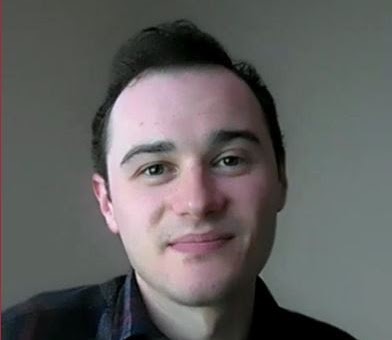
Amdanom ni
Rydym yn dîm o ymchwilwyr ac ymarferwyr addysgol sy’n datblygu arferion gorau
o ran addysgu ac asesu, ynghyd ag ymchwil wyddonol flaengar.
Os oes gennych ymholiad cyffredinol, cysylltwch â:
Y Tîm Gweithredu
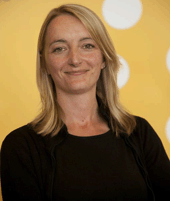
Yr Athro Manon Jones, Cyfarwyddw manon.jones@bangor.ac.uk
Mae Manon Jones yn Athro yn yr Ysgol Gwyddorau Dynol ac Ymddygiadol ym Mhrifysgol Bangor. Mae ei hymchwil mewn gwyddor gwybyddol (niwro), darllen ac iaith, gyda phwyslais penodol ar ddarllen medrus mewn oedolion, dyslecsia datblygiadol, a deulythrenedd. Mae ganddi ddiddordeb arbennig mewn egluro'r sgiliau gwybyddol sy'n galluogi rhai darllenwyr i fod yn rhugl iawn, gydag eraill byth yn cyrraedd lefelau rhuglder tebyg er eu bod yn ddeallus iawn ac yn gallu mynegi eu hunain yn dda. Yn ogystal â chynnal arbrofion i ymchwilio i'r materion hyn yn ei labordy, yr Athro Jones yw Prif Ymchwilydd y project Cyfarwyddyd Iaith a Llythrennedd o Bell (www.rillresearch.org), rhaglen a gynlluniwyd i gynorthwyo plant oed cynradd i ddysgu o bell yn ystod y cyfnodau clo, ac i ddal i fyny â sgiliau iaith a llythrennedd yn yr ystafell ddosbarth.

Mrs Joanna Dunton, M Ed, AMBDA, Cyfarwyddwr Addysgu j.dunton@bangor.ac.uk
Mae Mrs Dunton wedi dysgu plant o bob oed ac mewn gwahanol leoliadau yn ystod ei gyrfa, gan gynnwys mewn ysgolion arbennig a cholegau addysg bellach. Ymunodd â thîm addysgu Canolfan Dyslecsia Miles ar ôl cwblhau'r cwrs AMBDA ym Mangor, ac aeth ymlaen i fod yn Gyfarwyddwr Addysgu'r Ganolfan. Hi yw arweinydd modiwl cyrsiau Meistr achrededig Cymdeithas Dyslecsia Prydain a gyflwynir yn yr Ysgol Addysg, Prifysgol Bangor. Mae ar hyn o bryd yn aelod gweithredol o Fwrdd Achredu'r Gymdeithas.
Dr Cameron Downing, c.downing@leedstrinity.co.uk
Mae Dr. Downing yn ddarlithydd ym Mhrifysgol y Drindod, Leeds, ac yn aelod cysylltiol o Ganolfan Dyslecsia Miles. Mae ganddo ddiddordeb yn y ffordd yr ydym ni'n dysgu darllen ac ysgrifennu a beth sy'n digwydd pan rydym ni'n cael trafferth gwneud hynny. Mae'r diddordeb hwn yn rhychwantu tri maes cysylltiedig gan gynnwys (a) datblygu sillafu a llawysgrifen, (b) anhwylderau sy'n amharu ar ein gallu i ddysgu ysgrifennu (e.e. dyslecsia, anhwylder cydgysylltu datblygiadol, a dysgraphia), ac (c) ymdrin ag anawsterau llythrennedd (o bell).
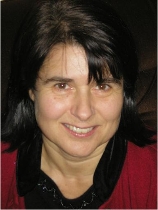
Dr Marketa Caravolas, Darllenydd mewn Seicoleg m.caravolas@bangor.ac.uk
Mae Dr. Caravolas yn Athro Cysylltiol mewn Seicoleg ym Mhrifysgol Bangor a hi oedd cyfarwyddwr Canolfan Dyslecsia Miles rhwng 2008 a 2014. Mae ei diddordebau ymchwil mewn datblygu llythrennedd ac anhwylderau cysylltiedig â hynny ac mae ei hysgolheictod yn rhychwantu theori ac ymarfer. Mae hi’n canolbwyntio ar seicoieithyddiaeth ddatblygiadol a llythrennedd cynnar, datblygiad ffonolegol a sillafu yng nghyd-destun llythrennedd cysylltiedig â’r wyddor. Nodwedd arbennig o'i gwaith yw ymchwil traws-ieithyddol ynglŷn â ffactorau iaith-gyffredinol ac iaith-benodol mewn datblygiad darllen a sillafu ymysg pobl heb a gyda dyslecsia arnynt. Mae hi hefyd wedi creu casgliad o brofion cynhwysfawr ar gyfer asesu a diagnosio anawsterau darllen a sillafu yn yr ieithoedd Tsiec a Slofac, ac ar hyn o bryd mae'n gweithio gyda chydweithwyr ar gasgliad sylweddol o brofion aml-iaith i asesu llythrennedd cynnar (MABEL), sy'n cynnwys mesurau cyfochrog cysylltiedig â llythrennedd yn Saesneg, Ffrangeg, Sbaeneg, Tsieceg, Slofac a Chymraeg.

Kelly Edwards, kelly.edwards@bangor.ac.uk
Mae Kelly Edwards yn aelod hirsefydlog o'r tîm, ar ôl ymuno dros 15 mlynedd yn ôl, ac mae'n gyfrifol am redeg y Ganolfan o ddydd i ddydd. Mae'r profiad y mae wedi'i ennill yn ei galluogi i ddarparu cyngor, arweiniad a gwybodaeth am y gwasanaethau niferus a gynigiwn. Mae Kelly hefyd yn rheoli ac yn goruchwylio'r Gwasanaeth Asesu ac Addysgu, gan gydlynu a threfnu’r apwyntiadau ar gyfer asesiadau, addysgu ac ymgynghori; mae hi'n gweithio'n agos gyda'n Hathrawon Arbenigol, Aseswyr Arbenigol a’n Seicolegwyr Addysg i sicrhau ein bod yn darparu'r gwasanaeth gorau y gallwn ei gynnig.

Ruth Elliott, Cydlynydd LEAPS ruth.elliott@bangor.ac.uk
Ruth yw cydlynydd y rhaglen LEAPS i Ganolfan Dyslecsia Miles. Cwrs i blant sy’n cael trafferth gyda’u sgiliau llythrennedd yw LEAPS i ddatblygu eu sgiliau darllen ac ysgrifennu. Bydd yn gweithio gyda gwirfoddolwyr a staff dysgu i gyflwyno cyrsiau i grwpiau o ddisgyblion yn CA2 a CA3, sydd angen hwb i’w sgiliau llythrennedd. Noddir a chefnogir rhaglen LEAPS gan Clogau Gold https://www.clogau.co.uk
Y Tîm Addysgu ac Asesu
- Mrs Nicola Cameron
- Ms Sophie Cantrell
- Mrs Shari Cliffe
- Mrs Elizabeth DuPre
- Ms Ruth Elliott
- Ms Joanne Gordon
- Mrs Cain Griffith
- Mrs Rosie Highstead
- Mr Geran Hughes
- Mrs Sian Lloyd Jones
- Miss Susan Lloyd-Williams
- Mrs Anne Littlewood
- Dr Anna McCormack-Colbert
- Mrs Susan Peace
- Mrs Danielle Peevor
- Mrs Lois Pierce Jones
- Mrs Dorreen Roberts
- Mrs Susan Sullivan
- Mrs Gaynor Taylor
- Mrs Alyson Walsh
- Mr Caspar Wynne
- Dr Fiona Zinovieff
Aelodau Cyswllt Ymchwil

Yr Athro Manon Jones, Athro Seicoleg manon.jones@bangor.ac.uk
Mae Manon yn croesawu ymholiadau anffurfiol gan ddarpar fyfyrwyr doethurol sydd â diddordeb mewn projectau sy'n ymwneud â seiliau gwybyddol a niwrowybyddol darllen, dyslecsia, cynhyrchu iaith a dwyieithrwydd. Cyflwynwch gynnig ymchwil drafft (1-2 dudalen) i'r cyfeiriad e-bost uchod.

Dr Marketa Caravolas, Darllenydd mewn Seicoleg
Mae fy mhrif ddiddordebau ymchwil ym maes datblygu llythrennedd mewn poblogaethau nodweddiadol ac mewn grwpiau ag anawsterau dysgu penodol, yn enwedig dyslecsia. Mae llawer o fy ngwaith yn cynnwys cynllunio hydredol a thrawsieithyddol ymhlith dysgwyr uniaith a dwyieithog. Mae nifer o'm projectau ymchwil wedi arwain at ddatblygu profion safonol ar gyfer asesu sgiliau llythrennedd plant mewn ieithoedd gan gynnwys Saesneg, Tsieceg, Slofaceg, Sbaeneg a Chymraeg.
Rwy’n gweithio gydag ymchwilwyr yn y Deyrnas Unedig yn ogystal ag mewn nifer o wledydd yn Ewrop a Gogledd America, ac wedi arwain amrywiaeth eang o brojectau rhyngwladol a ariennir yn allanol yn ymwneud â datblygu llythrennedd a’i anhwylderau.

Yr Athro Debbie Mills, Athro Seicoleg d.l.mills@bangor.ac.uk
Datblygiad yr ymennydd ac iaith, syndrom Williams, rhyngweithiadau rhwng genynnau, yr ymennydd ac ymddygiad.
Mae'r Athro Debbie Mills yn aelod o'r grŵp ymchwil Iaith, dwyieithrwydd a datblygiad gwybyddol a Niwrowyddoniaeth Gymdeithasol.

Dr Gary Oppenheim, Darlithydd Seicoleg g.m.oppenheim@bangor.ac.uk
Rwy’n defnyddio modelu cyfrifiannol, ynghyd ag arbrofion labordy ymddygiadol a niwroffisiolegol a dulliau niwroseicolegol gwybyddol i wrthdroi’r saernïaeth a’r algorithmau sy’n sail i gynhyrchu iaith. Mae llawer o fy ngwaith presennol yn canolbwyntio ar ddysgu geiriau ac adalw geiriau. Mae rhan o fy ymchwil hefyd yn ystyried y llais bach sydd i fod yn eich pen: lleferydd mewnol.
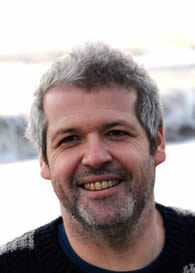
Yr Athro Guillaume Thierry, Athro Niwrowyddoniaeth Wybyddol g.thierry@bangor.ac.uk
Gan ddefnyddio seicoleg arbrofol ac electroenceffalograffeg, mae Guillaume Thierry yn astudio amgyffrediad iaith yn y moddau clywedol a gweledol, ac yn bennaf sut mae'r ymennydd dynol yn prosesu ystyr h.y. mynediad semantaidd. Ers iddo ddechrau ar ei yrfa ym Mhrifysgol Bangor yn 2000, mae'r Athro Thierry wedi ymchwilio i amrywiaeth o themâu, megis datgysylltiadau geiriol/di-eiriau, adnabod gwrthrychau gweledol, canfyddiad lliw, anghymesuredd swyddogaethol yn yr ymennydd, rhyngweithiadau iaith ac emosiynau, datblygiad iaith, dyslecsia datblygol a dwyieithrwydd. Ers 2005, mae'r Athro Thierry wedi cael cyllid gan y BBSRC, yr ESRC, yr AHRC, y Cyngor Ymchwil Ewropeaidd, a'r Academi Brydeinig i ymchwilio i integreiddio ystyr ar lefelau geirfaol, cystrawennol a chysyniadol ymhlith babanod ac oedolion, gan ddefnyddio mesuriadau ymddygiad, potensial yr ymennydd sy'n gysylltiedig â digwyddiad, olrhain llygaid a niwroddelweddu swyddogaethol, edrych ar wahaniaethau rhwng dulliau synhwyraidd, gwahanol ieithoedd mewn pobl ddwyieithog, a system godio (llafar / di-eiriau). Cwestiwn ymchwil craidd yr Athro Thierry yw sut mae'r ymennydd dynol yn crisialu gwybodaeth ac yn adeiladu cynrychiolaeth ystyrlon o'r byd o'i amgylch. Mae bellach yn canolbwyntio ar berthnasedd ieithyddol a chwestiwn athronyddol rhyddid meddwl.

Dr Marie-Josephe Tainturier, Uwch Ddarlithydd Seicoleg m.j.tainturier@bangor.ac.uk
Prif nod fy rhaglen ymchwil yw cyfrannu at well dealltwriaeth o'r mecanweithiau seicolegol a niwral sy'n sail i brosesu iaith mewn poblogaethau niwro-nodweddiadol yn ogystal â'u chwalfa mewn cyflyrau niwrolegol. Yn y maes prosesu iaith ysgrifenedig, rwyf yn fwyaf adnabyddus am fy ngwaith yn defnyddio dulliau niwroseicolegol gwybyddol, hynny yw, dadansoddiadau o berfformiad unigolion sydd wedi cael niwed i'r ymennydd, er mwyn llywio modelau o weithrediad gwybyddol arferol, yn enwedig o ran iaith ysgrifenedig. Dros y blynyddoedd, rwyf wedi datblygu gwybodaeth ar nifer o gwestiynau damcaniaethol pwysig yn y maes hwn gan gynnwys (a) swyddogaeth ffonoleg wrth gynhyrchu geiriau ysgrifenedig, (b) natur prosesau sillafu is-eirfaol (h.y. y rhai a ddefnyddir i gynhyrchu sillafiadau credadwy i eiriau newydd) (c) y berthynas rhwng prosesau geirfaol (ar y cof) ac is-eirfaol mewn sillafu, (d) strwythur cynrychioliadau orthograffig (h.y. cynrychioliad ymenyddol unedau llai na'r gair), (d) y berthynas rhwng darllen a phrosesau sillafu. Yn ogystal â’m gwaith gydag oedolion sy’n siarad, mae elfen gref o’m rhaglen ymchwil yn ymwneud â chaffael darllen a sillafu ac â’r diffygion gwybyddol sy’n gyfrifol am ddyslecsia datblygiadol.
Y gwreiddioldeb a’r cryfder mwyaf yn fy rhaglen ymchwil yw ei bod yn ceisio ateb cwestiynau sylfaenol am brosesu iaith trwy gasglu tystiolaeth ategol o’r astudiaeth o wahanol boblogaethau (cleifion sydd wedi cael niwed ar yr ymennydd, oedolion iach a phlant), gan ddefnyddio gwahanol fethodolegau (e.e. astudiaethau amser ymateb, dadansoddi corpws, ERPs, fMRI, tDCS) ac yn cynnwys gwahanol ieithoedd (Cymraeg, Saesneg a Ffrangeg yn bennaf).
Yn ystod y flwyddyn ddiwethaf, mae fy ngwaith wedi canolbwyntio’n fwy penodol ar y rhyngweithio rhwng systemau iaith mewn dwyieithrwydd (Cymraeg-Saesneg yn bennaf), ar gynrychiolaeth niwral ieithoedd lluosog ac ar ddysgu ail iaith. Fel rhan o’r ymchwil hwn, rwyf wedi creu protocolau â chymhelliant damcaniaethol i asesu ac adsefydlu anhwylderau iaith mewn oedolion dwyieithog Cymraeg-Saesneg sydd wedi cael niwed i’r ymennydd. Diolch i gydweithrediad parhaus gyda gwasanaeth Therapi Iaith a Lleferydd Bwrdd Iechyd Prifysgol Betsi Cadwaladr, rwyf wrthi’n ehangu ar effaith y gwaith hwn er budd clinigwyr yn genedlaethol ac yn rhyngwladol.
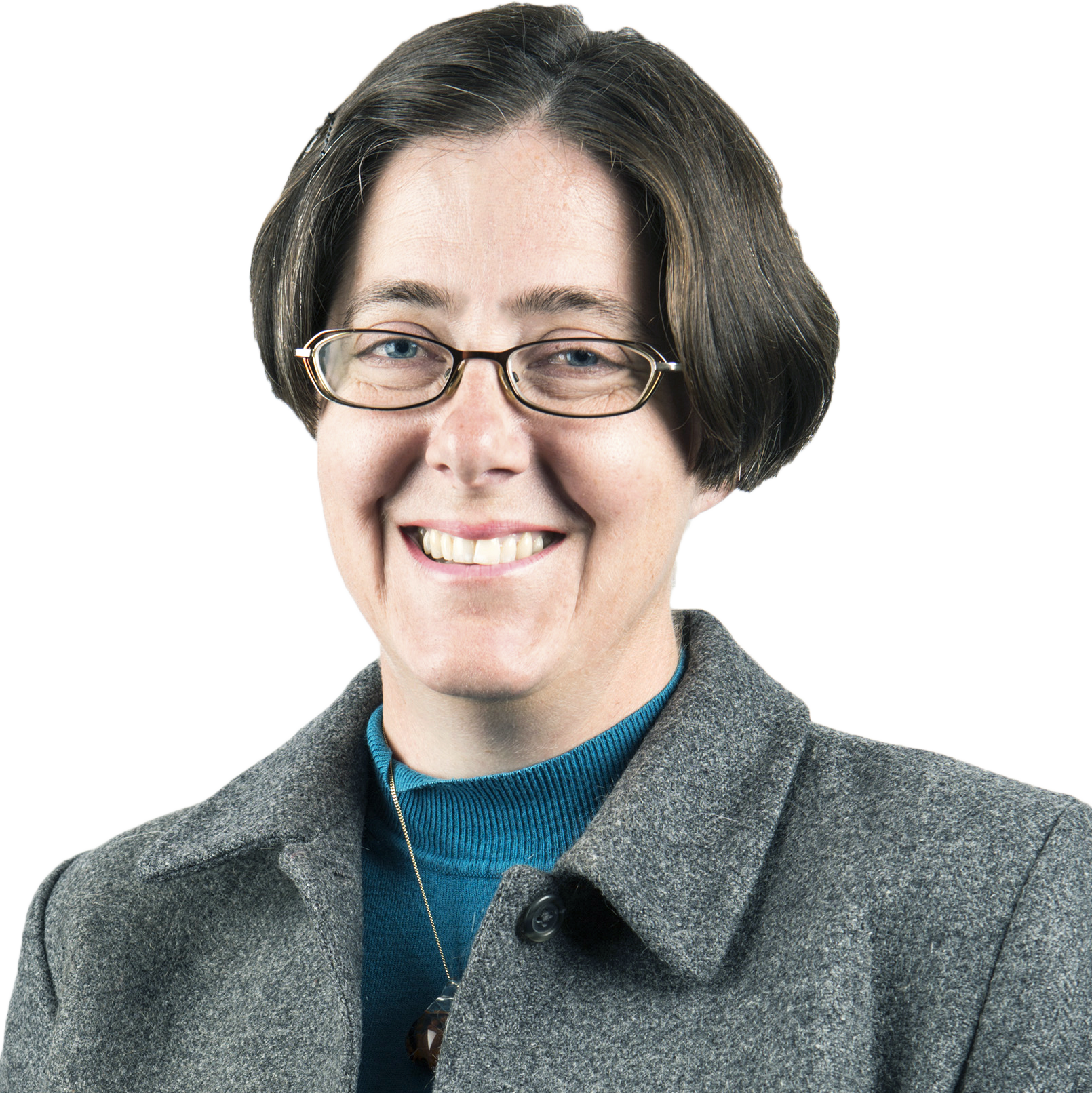
Yr Athro Kami Koldewyn, Athro mewn Seicoleg k.koldewyn@bangor.ac.uk
Enillodd Kami radd BA ddeuol mewn Cerddoriaeth ac Athroniaeth yng Ngholeg Pomona yng Nghaliffornia. Ar ôl sawl blwyddyn yn dysgu plant a phobl ifanc ag anhwylderau niwroddatblygiadol, dychwelodd i ysgol graddedigion a chwblhau PhD mewn Niwrowyddoniaeth ym Mhrifysgol California, Davis. Yna treuliodd bedair blynedd fel ymchwilydd ôl-ddoethurol yn Sefydliad Technoleg Massachusetts, yn gweithio gyda Nancy Kanwisher. Ymunodd â'r gyfadran ym Mangor yn 2013.
Mae Kami yn Ddarllenydd yn yr Ysgol Gwyddorau Dynol ac Ymddygiadol ac yn rhan o'r grŵp ymchwil Niwrowyddoniaeth Gymdeithasol yn yr ysgol.
Mae ei diddordebau ymchwil yn cynnwys: Datblygu canfyddiad cymdeithasol a gwybyddiaeth gymdeithasol ar draws y rhychwant oes, Anhwylder Sbectrwm Awtistiaeth ac anhwylderau niwroddatblygiadol eraill sy'n effeithio ar ganfyddiad cymdeithasol a gwybyddiaeth, a seiliau ymennydd canfyddiad cymdeithasol a gwybyddiaeth gymdeithasol.

Dr David Carey, Dartllenydd mewn Seicoleg d.carey@bangor.ac.uk
Mae gan Dr Carey ddiddordeb mewn arbenigo yn hemisffer chwith a dde yr ymennydd ar gyfer iaith, darllen a phrosesu wynebau, ac a yw darllenwyr â dyslecsia datblygiadol yn dangos anomaleddau yn hyn o beth, gyda goblygiadau swyddogaethol ar gyfer gallu darllen. Ar hyn o bryd mae Dr Carey yn Ddarllenydd yn yr Ysgol Gwyddorau Dynol ac Ymddygiadol ac mae'n derbyn ceisiadau gan fyfyrwyr PhD.
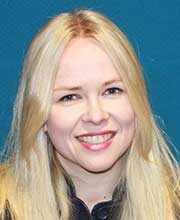
Yr Athro Enlli Thomas, Athro Addysg, Dirprwy Is-ganghellor Cynorthwyol enlli.thomas@bangor.ac.uk
Mae Enlli Thomas yn Gyfarwyddwr Ymchwil ac Effaith yn yr Ysgol Addysg a Datblygiad Dynol. Mae ei phrif ddiddordebau ac arbenigedd ymchwil yn cynnwys dulliau seicolegol o astudio caffael iaith ddwyieithog, gan gynnwys caffael plant o strwythurau cymhleth gyda dim ond ychydig o fewnbwn ieithyddol, asesu dwyieithog, a dulliau addysgol o drosglwyddo, caffael a defnyddio iaith. Mae wedi cynnal ymchwil ac wedi cyhoeddi’n helaeth mewn llawer o feysydd astudio iaith, yn cynnwys papurau ar agweddau ar gaffael dwyieithog, gan gynnwys ffactorau mewnbynnu sy'n dylanwadu ar gaffael L1-L2 llwyddiannus; trosglwyddo dwyieithog; asesiadau dwyieithog; llythrennedd ddwyieithog; swyddogaeth weithredol a dwyieithrwydd; statws economaidd-gymdeithasol a galluoedd iaith; a ffactorau'n dylanwadu ar ddefnyddio iaith. Mae hi'n rhoi darlithoedd gwadd rheolaidd i ymarferwyr a gweithwyr gofal plant yn y sector addysg a'r sector iechyd meddwl ar bynciau sy'n ymwneud â datblygiad iaith a dwyieithrwydd, ac mae wedi ymddangos yn rheolaidd ar deledu a radio fel arbenigwr.
Graddiodd mewn Seicoleg ym Mhrifysgol Bangor yn 1996 ac aeth ymlaen i ennill PhD mewn Seicoleg yn 2001. Roedd ei thesis yn edrych ar y ffordd mae plant Cymraeg eu hiaith yn caffael a defnyddio cenedl enwau yn y Gymraeg. Ar ôl cwblhau ei PhD, arhosodd ym Mangor i weithio fel ymchwilydd ôl-ddoethurol ar astudiaeth a gyllidwyd gan yr ESRC yn edrych ar ddatblygiad treiglo, cenedl enwau a chategorïau gramadegol mewn plant Cymraeg eu hiaith. Yn ystod ei blynyddoedd yn gweithio fel Aelod Cyswllt Addysgu yn yr Ysgol Seicoleg, bu'n gydawdur nifer o grantiau ymchwil mawr llwyddiannus, gan edrych ar arferion trosglwyddo iaith yn y cartref (Bwrdd yr Iaith Gymraeg), effeithiau gwybyddol dwyieithrwydd gydol oes (ESRC), datblygu offer asesu iaith Gymraeg (Llywodraeth Cynulliad Cymru), asesiad niwroseicolegol o siaradwyr dwyieithog Cymraeg-Saesneg (Pwyllgor Ymchwil Gogledd Cymru a Phwyllgor Dyfarnu Grantiau Ymchwil a Datblygu Ymddiriedolaeth GIG Gorllewin Cymru) a dwyieithrwydd a dementia (Pwyllgor Ymchwil Gogledd Cymru).
Ers symud i’r Ysgol Addysg yn 2007, mae wedi parhau i gydweithio ar nifer o astudiaethau gan gynnwys grant ar raddfa fawr yn edrych ar effaith dwyieithrwydd ar gleifion â chlefyd Altzheimer a chlefyd Parkinson (ESRC), ac roedd yn aelod craidd o bwyllgor gweithredu’r Ganolfan ESRC ar gyfer Ymchwil i Addysg mewn Theori ac Ymarfer. Ar yr un pryd, mae hi wedi bod yn cymhwyso ei harbenigedd yn weithredol yn y cyd-destun addysg. Ers ymuno â’r Ysgol Addysg, mae wedi arwain nifer o brojectau ymchwil, gan gynnwys rhai sy'n edrych ar ddatblygu defnydd cymdeithasol plant o'r Gymraeg yn y dosbarth a thu allan iddo (Hunaniaith a Bwrdd yr Iaith Gymraeg), rhai sy'n edrych ar gyfleoedd a roddir i blant L2 i ddefnyddio'r Gymraeg yn y dosbarth (Llywodraeth Cymru), datblygu addasiadau Cymraeg o fesurau safonol mesurau ieithyddol ac anieithyddol a ddefnyddir yn eang mewn ysgolion (GL Assessment), gwerthuso rhaglen ddarllen Premier League Reading Stars Cymru (Ymddiriedolaeth Llythrennedd Genedlaethol), a gwerthuso rhaglen deuluol - The Family Learning Signature - i helpu awdurdodau addysg i wella cyrhaeddiad, presenoldeb ac ymddygiad, yn enwedig gyda theuluoedd anodd eu cyrraedd a dysgwyr sydd wedi ymddieithrio (Cronfeydd Ehangu Mynediad). Yn ddiweddar, bu'n cyd-arwain ar broject a ariennir gan Gonsortia Ôl-16 Gwynedd a Môn i werthuso'r gwahanol fathau o addysgu 'dwyieithog' a ddefnyddir ar draws y rhanbarth a datblygu meddalwedd newydd i alluogi sefydliadau i olrhain y defnydd o'r Gymraeg a'r Saesneg ar draws y cwricwlwm yn flynyddol fel rhan o'u strategaeth cynllunio iaith. Mae'r feddalwedd bellach yn cael ei defnyddio ym mhob sefydliad yng Ngwynedd ac Ynys Môn sy'n darparu i ddisgyblion ôl-16. Yn ddiweddar, mae wedi bod yn gydawdur grant ESRC ar raddfa fawr (£1.8 miliwn), sy'n broject aml-sefydliad i ddatblygu'r corpws torfol cyntaf i gasglu enghreifftiau o'r defnydd o'r Gymraeg, yn y gorffennol, y presennol a'r dyfodol. Bydd yn cyd-arwain ar ddatblygu a gwerthuso adnodd penodol ar gyfer athrawon a dysgwyr Cymraeg a fydd yn deillio o'r corpws fel rhan o'r ymchwil.
Mae hi hefyd yn awdur a chydawdur nifer o erthyglau a phenodau llyfrau, a chydawdur offer safonol ar gyfer mesur geirfa plant yn y Gymraeg. Yn ddiweddar, bu’n gyd-olygodd y gyfrol "Advances in the Study of Bilingualism".
Aelodau sy'n Fyfyrwyr

Simone Calabrich, sml19pvv@bangor.ac.uk
Mae Simone Calabrich yn fyfyrwraig PhD yn yr Ysgol Seicoleg ym Mhrifysgol Bangor. Ar hyn o bryd mae hi'n ymchwilio i'r gwahanol brosesau sy'n sail i gaffael cysylltiadau gweledol-ffonolegol newydd mewn unigolion â dyslecsia datblygiadol a darllenwyr nodweddiadol. Mae hi hefyd yn gweithio fel dadansoddwr data ar gyfer y project Cyfarwyddyd Llythrennedd ac Iaith o Bell. Mae gan Simone radd MSc mewn Ieithyddiaeth Glinigol a ddyfarnwyd ar y cyd gan Brifysgolion Groningen, Dwyrain y Ffindir, a Potsdam, ac MA mewn Ieithyddiaeth Gymhwysol o Goleg y Brenin Llundain. Mae ganddi brofiad gydag ymchwil olrhain llygaid - yn y labordy a thros gwe-gamera - yn ogystal ag olrhain symudiadau cyrchwr cyfrifiadurol ac electroenceffalograffi (posibiliadau cysylltiedig â digwyddiadau).

Catrin Leah Hadden, sepae5@bangor.ac.uk
Cwblhaodd Ms Catrin Leah Hadden ei BSc mewn Seicoleg a’i gradd MSc mewn Ymchwil Seicolegol ym Mhrifysgol Bangor. Ar hyn o bryd, mae'n ymgeisydd doethuriaeth ym Mhrifysgol Bangor. Mae ei thraethawd ymchwil yn canolbwyntio ar ddatblygiad llythrennedd cynnar ymhlith dysgwyr dwyieithog Cymraeg-Saesneg o gamau cynharaf dysgu darllen a sillafu, ac ar ganfyddiad cynnar y posibilrwydd o anhwylderau darllen ymhlith dysgwyr dwyieithog. Ers dwy flynedd bu Ms Hadden yn Arweinydd Project gwirfoddol ar y rhaglen ymyrraeth 'Llamu i Lythrennedd' sy'n cael ei rhedeg gan y Ganolfan Dyslecsia.
Y Pwyllgor Gwyddonol
Marie Lallier, BCBL Spain
Gwendoline Mahe, CNRS Lille
